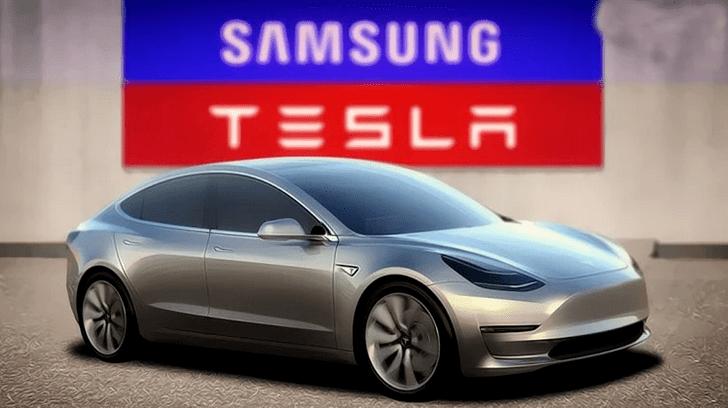
Recently, Tesla signed a chip purchase agreement worth up to 16.5 billion US dollars with Samsung Electronics. This news has quickly drawn widespread attention from the technology industry and the capital market. As a global leader in the electric vehicle sector, Tesla's move not only demonstrates its profound considerations in the layout of the chip supply chain, but may also have a significant impact on Samsung Electronics' foundry business and even the entire chip industry.
Tesla's choice of Samsung Electronics as its production partner for the next-generation AI6 chip is undoubtedly an endorsement of Samsung's foundry technology. However, behind this recognition lies Tesla's reluctant choice in the current tight chip supply situation. In recent years, with the rapid development of autonomous driving technology, chips have become one of the core components of electric vehicles. As a pioneer in autonomous driving technology, Tesla has an increasing demand for high-performance AI chips.
Although Samsung Electronics' Taylor factory in Texas had previously encountered difficulties in attracting and retaining major clients, its advanced manufacturing process technology and huge production capacity still make it an important force in the global chip foundry market. This collaboration between Tesla and Samsung will undoubtedly leverage Samsung's technological and production capacity advantages to provide a strong guarantee for the production of its next-generation AI6 chips. However, it is worth noting that the true mass production of the AI6 chip will still take several years, which means that Tesla will still find it difficult to get out of the current tight chip supply situation in the short term.
From Samsung's perspective, this deal undoubtedly brings a glimmer of hope to its contract manufacturing business. As the world's largest manufacturer of memory chips, Samsung's performance in the foundry business has always been unsatisfactory. Especially when facing fierce competition from rivals like TSMC, Samsung's foundry business has been in a long-term loss-making state. This cooperation with Tesla is not only expected to bring stable orders and income to Samsung's foundry business, but also will help it achieve breakthroughs in the field of artificial intelligence chip production. However, such a breakthrough was not achieved overnight. Samsung's accumulation and innovation in foundry technology, as well as the increase in its share in the global foundry market, still require tremendous efforts and time.
In addition, the collaboration between Tesla and Samsung may also have a profound impact on the global chip industry landscape. With the rapid development of electric vehicles and autonomous driving technology, the demand for chips will continue to grow. As the leader in the electric vehicle sector, Tesla's chip procurement strategy will undoubtedly have a significant impact on the global chip supply chain. This time, Tesla's choice of Samsung as its chip production partner may trigger a follow-up effect among other electric vehicle manufacturers and chip manufacturers, thereby further intensifying the competitive situation in the global chip market.
However, the intensification of this competitive situation may also bring about a series of problems. Firstly, as the demand for chips continues to grow, chip manufacturers will face greater production and cost pressures. How to ensure the quality and performance of chips while reducing production costs and improving production efficiency will become an important challenge for chip manufacturers. Secondly, as competition in the global chip market intensifies, the instability of chip supply will further increase. This will have a huge impact on electric vehicle manufacturers and other industries that rely on chips, potentially leading to supply chain disruptions, rising production costs and other issues.
To sum up, the $16.5 billion chip supply agreement signed by Tesla and Samsung will not only have a significant impact on the business of both parties, but also may have a profound influence on the global chip industry landscape. This kind of cooperation brings both opportunities and challenges. How to ensure the quality and performance of chips while reducing costs, improving efficiency, and responding to the uncertainties of market competition and political and economic factors will become an important issue for Tesla, Samsung, and the entire chip industry. In the future, with the continuous development of electric vehicles and autonomous driving technologies, the demand for chips will keep growing. How the cooperation between Tesla and Samsung will develop and what impact this collaboration will have on both parties' businesses and even the entire chip industry are worth our continuous attention.

On January 4th local time, Trump warned India that if it does not limit its purchase of Russian oil, the United States will continue to raise tariffs on Indian products. Trump's latest warning sent shockwaves through the Indian financial market in just one day.
On January 4th local time, Trump warned India that if it do…
In October 2025, the US trade deficit narrowed unexpectedly…
According to the British media CoinJournal, recently, due t…
In January 2026, US President Trump once again set his sigh…
Europe is facing a crucial strategic choice: In the face of…
On New Year's Day 2026, BMW China announced a "systematic v…